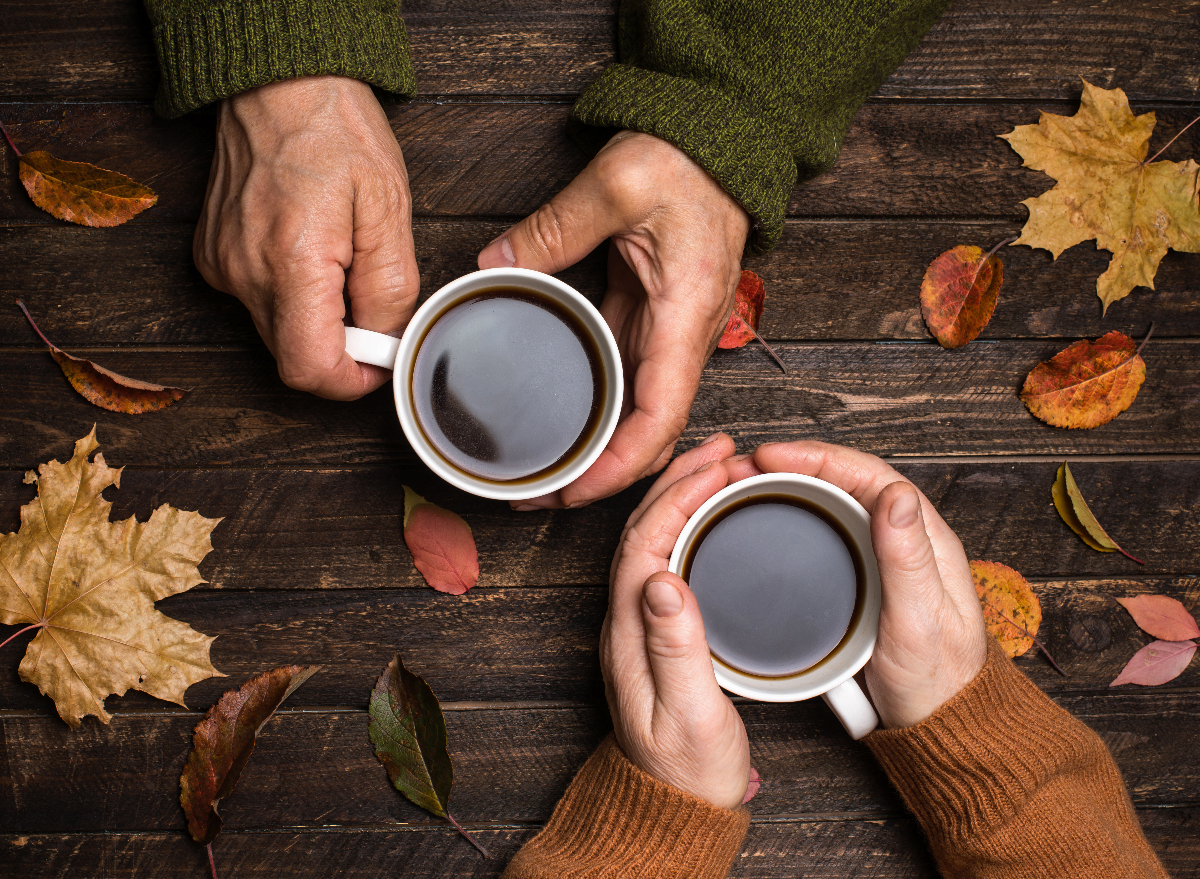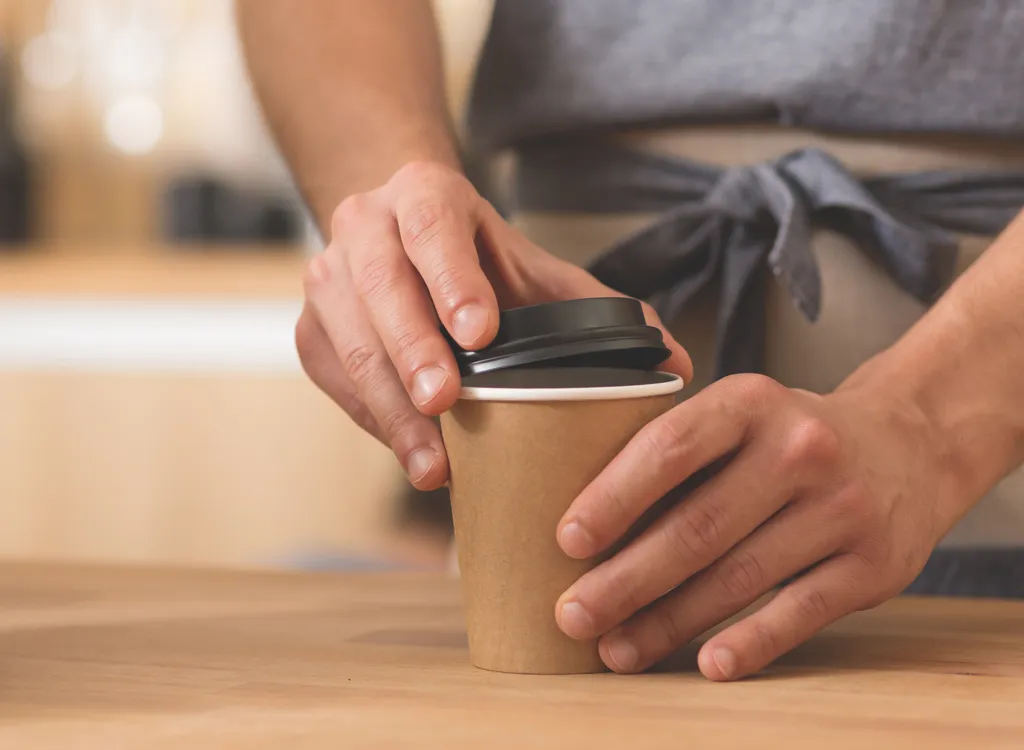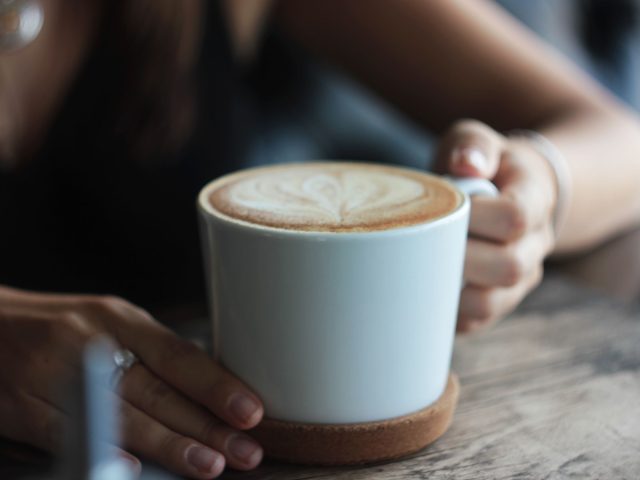Ugly Side Effects of Drinking Too Much Coffee, According to Science

Let's just get down to it. How much coffee is considered too much coffee? Surprisingly, you can drink a lot of coffee during the week. It's actually recommended that people stick to no more than 28 cups of coffee a week, which is about four cups of coffee a day. However, drinking more of that can cause negative effects on one's health—particularly their lifespan.
One study evaluating 40,000 adults found that drinking more than the average four cups of coffee a day did cause ugly side effects on their bodies. A recent study from the European Society of Cardiology discovered that the sweet spot was two to three cups a day. Plus, it noted that all types of coffee—ground, instant, and decaf—have positive effects that can extend your life.
If you're one to consume more than 32 ounces of coffee a day or love to down sugary lattes from your local coffee chain, it may be wise to evaluate these ugly side effects if you're drinking too much coffee. Because while having a little caffeine can cause a lower risk of death according to the AARP, drinking too much of it can create negative side effects to one's health.
Here are the ugly side effects to expect if you're drinking too much coffee, according to research.
You feel anxious.

A typical eight-ounce cup of coffee has 95 milligrams of caffeine in it. So if you were to drink over four cups of coffee, you would hit around 500 milligrams of caffeine in a day. One study by the Journal of Psychopharmacology reports that being a high consumer of caffeine on this type of level can cause high levels of stress, anxiety, and even depression. The study says that consuming more than 1,000 milligrams of caffeine a week even showed to be a predictor of high anxiety.
While anxiety and stress are good things to talk over with a medical professional—especially in terms of your mental health—it's also important to evaluate your caffeine intake with that professional and discuss better caffeine habits moving forward.
Here are the Side Effects of Drinking Caffeine, According to Science.
You're not getting good sleep.

Regularly consuming coffee can cause issues with your normal sleep patterns, especially if you're enjoying a pick-me-up cup in the afternoon. One study evaluated 197 high school students, a mixed amount of users with moderate caffeine intake reported early morning awakening and daytime sleepiness compared to a group that drank lower amounts of caffeine. While there are a lot of health benefits to drinking coffee on the regular, keeping your daily coffee intake to a minimum—and in the morning—can help with your sleep patterns at night.
Here are 7 Healthy Diet Changes That Help You Sleep.
Your heart rate is increasing.

Although one controlled study showed that drinking 100 milligrams of caffeine between every hour to five hours did not cause increased heart rates, drinking a significant amount can lead to an altered heartbeat rhythm. But it would take a significant amount of caffeine intake to do so.
You have the jitters.

Ever experience the shakes after too many cups of coffee? This can actually be defined as a caffeine overdose, which Healthline states can cause headaches, jitters, difficulty sleeping, and as we already mentioned, an increased heart rate. If you're experiencing any of these severe ugly side effects you're drinking too much coffee, you should seek medical attention.
You're feeling fatigued.

It's natural to turn to coffee—or other forms of caffeine—when you're feeling tired. But did you know consuming too much caffeine can actually have a negative effect? Especially if it includes added sugars. In a study published by Innovations in Clinical Neuroscience, where participants were given certain amounts of caffeinated beverages for energy, drinking caffeinated beverages—especially with sugar—on a regular basis did cause mental fatigue for participants. While this is common for caffeine to cause decreased energy levels as it wears off, it's best to time it for when you plan on sleeping—instead of turning to more coffee to keep you awake. Because disrupted sleep later will cause even more fatigue throughout the day, creating a vicious cycle.
A previous version of this article was originally published on January 22, 2021.









